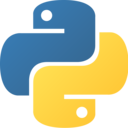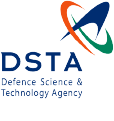What is Python?
Python is a powerful and beginner-friendly programming language used in everything from data analysis and automation to software development and AI. It's free to use and supported by a massive global community, with over 237,000 libraries and packages. Our Python courses are designed to help you start using Python for real-world data tasks quickly and confidently.
What is Python used for?
Python is used for data analysis, machine learning, automation, web development and more. Its versatility and simplicity make it popular across industries. In our Python training, you'll focus on using Python for data analysis with tools like pandas and JupyterLab.
How is Python used in data analytics?
Python is ideal for data analytics because it allows you to clean, transform, and visualise large datasets. With libraries like pandas, NumPy and Matplotlib, you can uncover patterns, generate insights and support data-driven decisions. These skills are core to our Python for data analysis course.
Why use Python for data analysis?
Python is simple to learn and powerful for data work. It integrates easily with Excel, Power BI and databases, and supports advanced analytics with libraries like Seaborn and scikit-learn. Our Python data analysis courses teach you how to use these tools to improve efficiency and gain insights.
Is a Python course suitable for beginners?
Yes. Python is widely recommended for beginners because of its easy-to-read syntax. Our beginner Python course is designed with step-by-step instruction, making it accessible for those with no prior programming experience.
Are there any prerequisites for a Python course?
There are no prerequisites for the beginner course. If you’re comfortable using a computer, you’re ready to get started. For intermediate and advanced Python courses, some familiarity with Python and pandas is recommended.
How long does a Python course take?
Our Python courses run over one or two days each, depending on the level. You can complete our beginner, intermediate and advanced courses in a short timeframe, or take them at your own pace.
What jobs can I get after completing a Python course?
A Python certification can lead to roles such as Junior Python Developer, Data Analyst, QA Tester or Automation Engineer. With experience, you can progress into positions like Data Scientist, Machine Learning Engineer or DevOps Engineer. Python is used across industries, including finance, healthcare, logistics and tech.
Why choose Nexacu for Python training?
Our Python courses are hands-on, instructor-led and built for real-world application. You’ll learn using industry tools like JupyterLab, pandas and Matplotlib. Our expert trainers provide live support and practical examples to help you build job-ready data analysis skills.
What’s the difference between Beginner, Intermediate and Advanced Python courses?
Our Beginner course covers Python basics, JupyterLab and working with pandas. The Intermediate course focuses on data manipulation, functions and visualisation using Seaborn and Matplotlib. The Advanced course includes automation, writing classes, method chaining and interactive dashboards with Bokeh.
Can Python be used with Excel or Power BI?
Yes. Python works well with Excel and Power BI for advanced data manipulation and visualisation. You can write Python scripts to clean data and generate insights directly within these platforms. This is covered in our Intermediate and Advanced Python courses.
What other courses pair well with Python?
To expand your data skills, consider adding training in Power BI, Excel or SQL. These courses complement Python and help you build a complete analytics skillset for roles in business intelligence, data analysis and automation.

 Australia
Australia New Zealand
New Zealand
 Singapore
Singapore
 Hong Kong
Hong Kong
 Malaysia
Malaysia
 Philippines
Philippines
 Indonesia
Indonesia

























